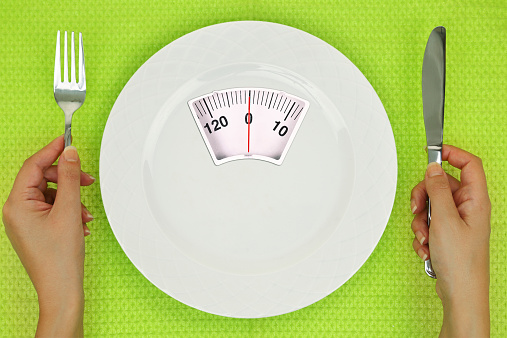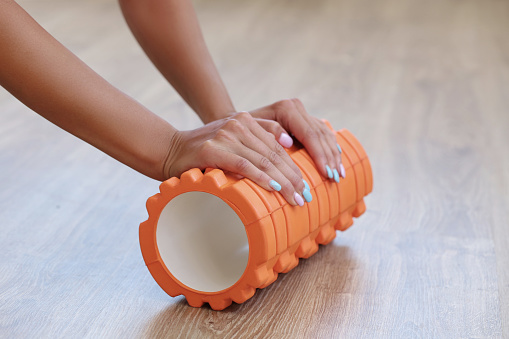7 Signs You Need More Vitamin D
Article posted in: Diet & Nutrition
Summer days spent in beach chairs and flip flops are officially a distant memory. As winter draws near we say goodbye to our sun-kissed glow. But we also lose vitamin D, the sunshine vitamin.
According to the Centers for Disease Control and Prevention (CDC), over one billion people worldwide suffer from vitamin D deficiency. The same organization reports that one quarter of Americans are deficient. Some researchers consider the widespread deficiency a pandemic.
In fact, the Association of Nutrition and Dietetics states that vitamin D is a nutrient of public health concern. In May 2016, the FDA rolled out new regulations for food manufacturers, which require that a food’s Vitamin D content be listed on the nutrition facts label. It’s that important!
But why? Vitamin D deficiency is known for causing bone deformities and rickets in many underdeveloped countries. Research has shown that vitamin D is important to immune system and muscle function, heart health, brain development and mood.
Our best and most effective source of vitamin D is from the sun (hence the term “sunshine vitamin”). As skin cancer and UV exposure concerns rise, our time in the sun making vitamin D decreases. Skin must be exposed to the sun without protection to achieve sufficient levels.
Is sun your only option? No, but it is the best option. Unfortunately, there are very few food sources of vitamin D. The foods that do contain the sunshine vitamin usually have small amounts. Fatty fish like salmon and tuna, fortified milk and orange juice are all dietary sources of vitamin D.
Since vitamin D deficiencies are so common, and given the health complications inherent to deficiency, it’s important to understand the signs and symptoms. Here, we’ve listed seven common symptoms of vitamin D deficiency. If you are experiencing any of these issues, see your healthcare provider. He or she can conduct a blood test to determine your levels, and help devise a plan of action for dealing with the deficiency.
1. Fatigue
The Vitamin D Council states the symptoms of vitamin D deficiency are sometimes vague and can include tiredness and general aches and pains. If you’re sleeping well, eating well and exercising but still feel unexplained fatigue, it may be time to get your vitamin D levels tested.
2. Aches and Pains
Severe vitamin D deficiency can compromise the integrity of your bones, causing weakness and pain. Patients are often misdiagnosed with fibromyalgia, arthritis and other diseases. Chronic pain lasting longer than two weeks may warrant a vitamin D test.
3. Mood Disorders
Winter blues? Vitamin D may be your sunshine on a cloudy day. A study published in the American Journal of Geriatric Psychology found vitamin D deficiency was related to lower moods in older adults. Further research has found correlations between low vitamin D and mood disorders, seasonal affectiveness disorder (SAD) and premenstrual syndrome.
Our brains have receptors just for vitamin D. Without the vitamin, our mood hormones may be out of balance. Research has repeatedly confirmed the link between depression and low vitamin D.
4. Dark Skin
The darker the skin, the more time you need in the sun to convert sunshine into vitamin D. This is less of a symptom and more of a risk factor. If you have limited sun exposure and dark skin, it is recommended you get your vitamin D levels tested.
5. Overweight
Vitamin D is fat soluble and our fat cells love to soak it up leaving it less available for other functions in our body. Therefore, if you have extra fat cells in your body, you could be at risk of developig a deficiency. Those with a BMI higher than 30 are most at risk. An ideal body mass index is between 18.5 and 24.9. Losing weight can improve your heart health, risk of cancers, stroke and improve your vitamin D levels.
6. Excessive Sweating
If your forehead beads sweat without an increase in activity levels, you maybe vitamin D deficient. While the cause is not clear, it is a classic symptom in everyone from newborns to adults.
7. Broken Bones
Vitamin D is key to helping calcium build strong bones and prevent bone loss. You stop building your bone mass around age 30, and your risk of osteoporosis increases as you get older. Research in the American Journal of Clinical Nutrition suggested a lack of vitamin D can speed up osteoporosis.
A spokesperson from the Vitamin D Council, Amber Tovey, reminds us, “Some people may not experience any symptoms at all. The only way to truly tell if you are vitamin D deficient is to get your 25(OH)D levels measured. The Vitamin D Council sells the most affordable in-home test kit on the market in the United States. By maintaining healthy vitamin D levels, you are able to reduce your risk of various diseases and ailments. Recent research suggests that low vitamin D status increases your risk of breast cancer, prostate cancer and heart disease.“











